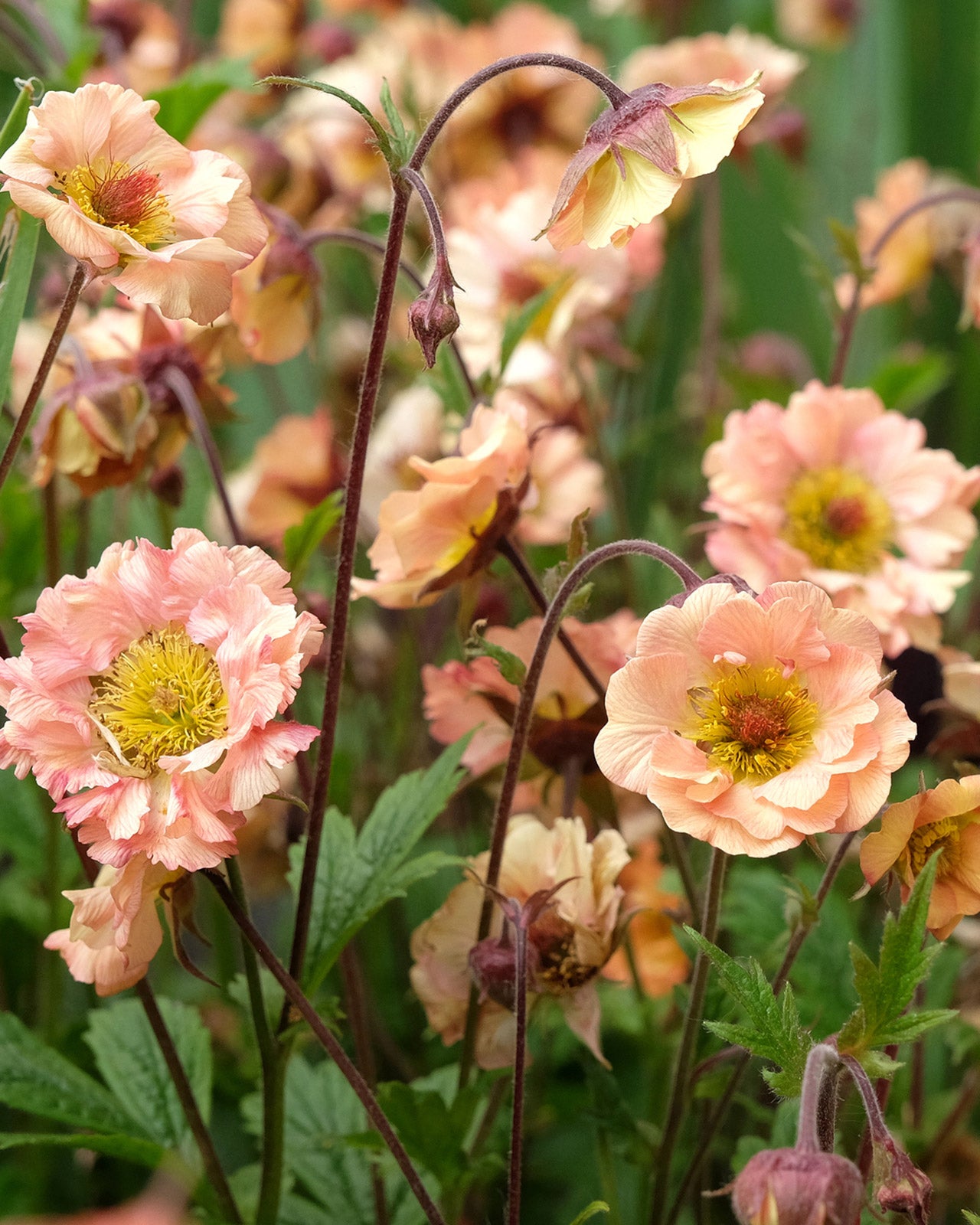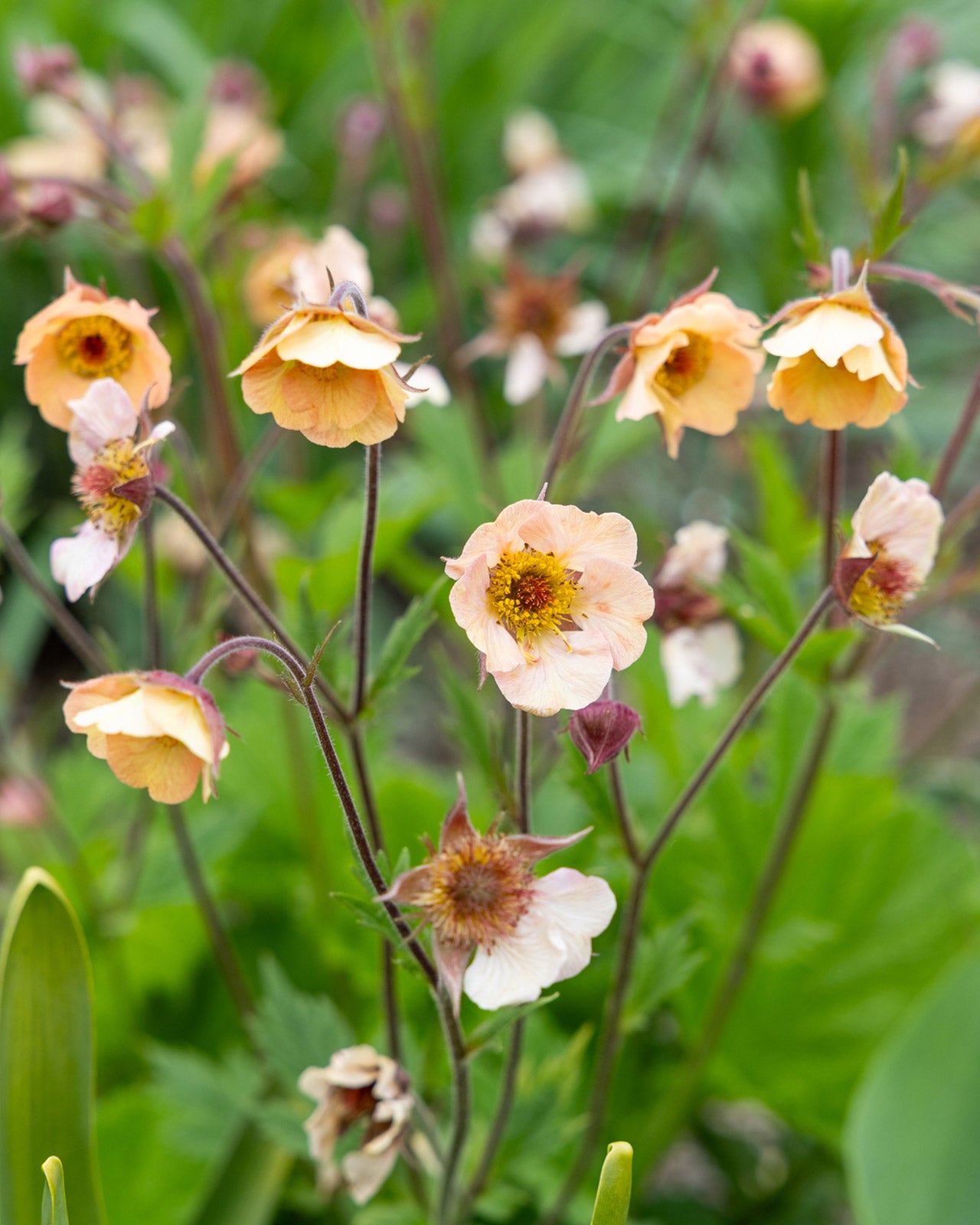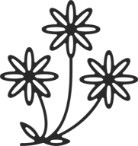

-
Why we like this plant
Geum 'Mai Tai' offers a unique and soft colour palette, making it a fantastic companion to pastel-toned or deep-hued perennials. Its long flowering period, compact growth, and pollinator-friendly nature make it an excellent choice for vibrant yet elegant garden displays.
-
About this plant
Part of the Cocktails Series, Geum 'Mai Tai' is a striking perennial with semi-double, ruffled flowers in warm shades of peach, apricot, and soft pink. Its airy, nodding blooms rise above a mound of fresh green, slightly hairy foliage, creating a delicate yet vibrant display. Flowering from late spring through early summer, and often reblooming intermittently into autumn, this compact geum is ideal for cottage gardens, mixed borders, and container planting. It thrives in well-drained soil and is particularly effective when planted in groups or combined with other early-summer perennials.
-
Key features
- Elegant, semi-double apricot-peach flowers with ruffled petals
- Long flowering period from late spring to early summer
- Compact and clump-forming, ideal for small spaces
- Attractive to pollinators, especially bees
- Perfect for borders, containers, and cottage gardens
-

Height and
spread -

Growth
habitCompact, clump-forming
-

Moisture
Moderate watering; prefers consistent moisture but not waterlogged soil
-

Position in
the GardenBorders, cottage gardens, containers, wildlife-friendly areas
Planting guide
- Plant in moist but well-drained soil, enriched with organic matter
- Space plants around 30-40cm apart to allow for spreading
- Best planted in spring or autumn for strong establishment
Care tips
- Deadhead regularly to encourage further blooming
- Cut back after flowering to promote fresh growth
- Water regularly in dry spells, ensuring good drainage
- Apply a general-purpose fertiliser in spring for better blooms
- Divide clumps every 2-3 years to maintain vigour
Winter care
- Fully hardy; requires little winter protection
- Cut back old foliage in late autumn or early spring
- Mulch in colder regions to protect roots from frost











